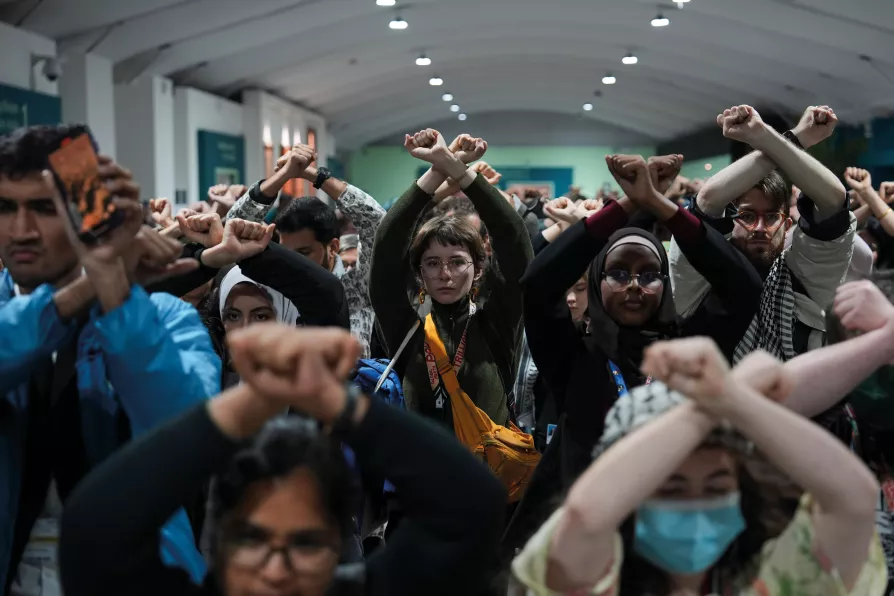Cuba, despite the privations, remains a beacon of sovereignty and resistance to imperialism, writes BERNARD REGAN

 STANDING FIRM: Activists demonstrate in silence protesting against a draft of a proposed deal for curbing climate change at the Cop29
UN Climate Summit, November 22, 2024, in Baku, Azerbaijan
STANDING FIRM: Activists demonstrate in silence protesting against a draft of a proposed deal for curbing climate change at the Cop29
UN Climate Summit, November 22, 2024, in Baku, Azerbaijan
AS THE United Nations climate summit once again failed to deliver any realistic finance to help developing countries deal with the impact of the worsening climate emergency, 144 countries face the worst debt crisis in history.
The fact that there are 193 UN recognised sovereign countries illustrates the depth of the debt crisis facing the beleaguered global South.
A report earlier this year by the campaign group Debt Relief International for Norwegian Church Aid (DRI) shows that repaying the debt is absorbing 41.5 per cent of budget revenues, 41.6 per cent of spending, and 8.4 per cent of gross domestic product on average across the 144 developing countries.

From summit to summit, imperialist companies and governments cut, delay or water down their commitments, warn the Communist Parties of Britain, France, Portugal and Spain and the Workers Party of Belgium in a joint statement on Cop30

The West’s dangerous pesticide dumping in Africa is threatening biodiversity, population health and food sovereignty, argues ROGER McKENZIE

ROGER McKENZIE expounds on the motivation that drove him to write a book that anticipates a dawn of a new, fully liberated Africa – the land of his ancestors

While much attention is focused on Israel’s aggression, we cannot ignore the conflicts in Africa, stoked by Western imperialism and greed for natural resources, if we’re to understand the full picture of geopolitics today, argues ROGER McKENZIE










